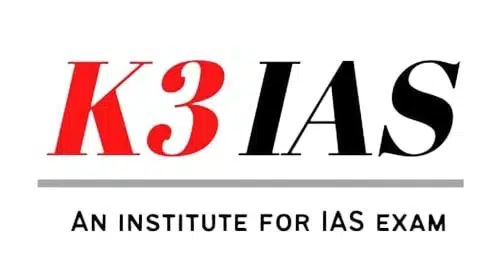MPPSC and UPSC Syllabus | Exam Pattern
UPSC Syllabus | UPSC Pre and Mains Syllabus | MPPSC Syllabus | MPPSC Pre and Mains Syllabus
UPSC Syllabus
UPSC Syllabus 2024 Preliminary Examination
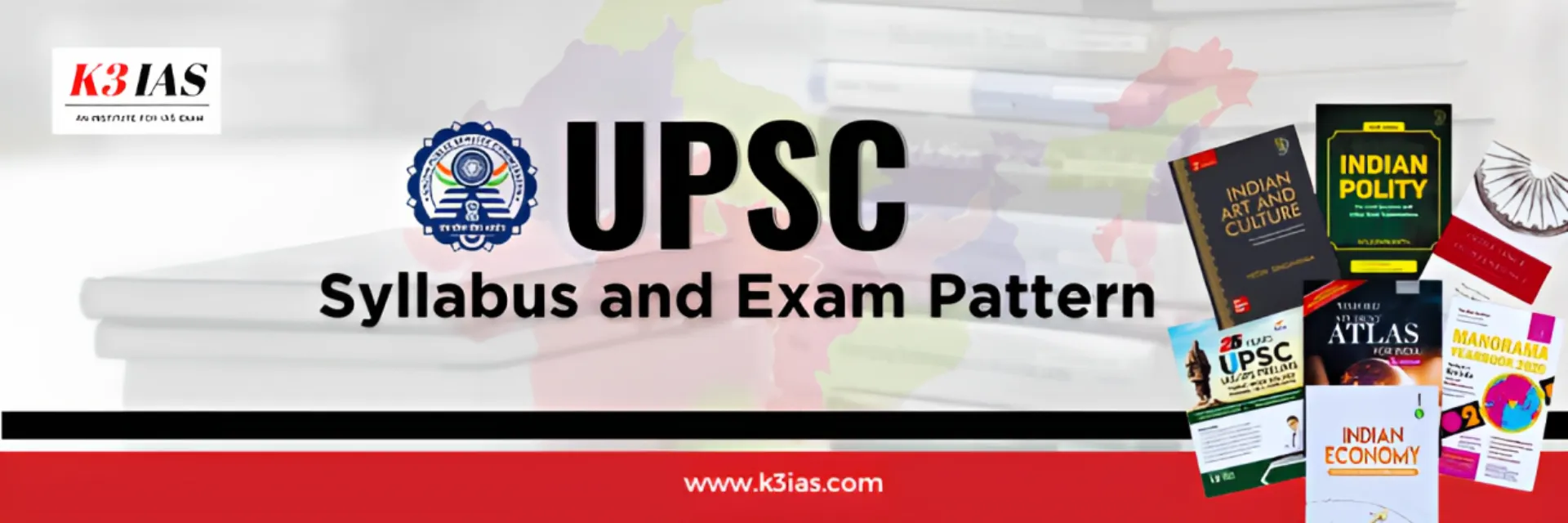
General Studies Paper-I
- Current events of national and international importance.
- History of India and Indian National Movement.
- Indian and World Geography-Physical, Social, Economic Geography of India and the World.
- Indian Polity and Governance-Constitution, Political System, Panchayati Raj, Public Policy, Rights Issues, etc.
- Economic and Social Development-Sustainable Development, Poverty, Inclusion, Demographics, Social Sector Initiatives, etc.
- General issues on Environmental ecology, Biodiversity and Climate Change
- General Science
General Studies Paper-II (CSAT)
- Comprehension
- Interpersonal skills including communication skills
- Logical reasoning and analytical ability
- Decision-making and problem-solving
- General mental ability
- Basic numeracy (numbers and their relations, orders of magnitude, etc.) (Class X level), Data interpretation (charts, graphs, tables, data sufficiency, etc. — Class X level)
UPSC Syllabus 2024 for Mains Examination
Paper A: Indian Languages:-
- Comprehension of given passages.
- Precise Writing.
- Usage and Vocabulary.
- Short Essays.
- Translation from English to the Indian Language and vice-versa
Paper B: English
- Comprehension of given passages.
- Precise Writing.
- Usage and Vocabulary.
- Short Essays.
PAPER-I: Essay:
- Candidates may be required to write essays on multiple topics.
PAPER-II: General Studies-I:
- Indian Heritage and Culture
- Modern Indian History
- World History
- Indian Society
- Geography
PAPER-III: General Studies-II:
- Indian Constitution
- Indian Polity
- Social Justice
- Indian Governance
- International Relations
PAPER-IV: General Studies-III:
- Indian Economy
- Science and Technology
- Environment & Biodiversity
- Disaster Management
- Security
PAPER-V: General Studies-IV:
- Ethics and Human Interface
- Attitude
- Emotional Intelligence
- Public/Civil service values and Ethics in Public Administration
- Probity in Governance
PAPER-VI & PAPER VII: Optional Subject Papers I & II: Candidates may choose any optional subjects.
- Agriculture
- Animal Husbandry and Veterinary Science
- Anthropology
- Botany
- Chemistry
- Civil Engineering
- Commerce and Accountancy
- Economics
- Electrical Engineering
- Geography
- Geology
- History
- Law
- Assamese
- Bengali
- Dogri
- English
- Gujarati
- Hindi
- Kannada
- Kashmiri
- Konkani
- Maithili
- Malayalam
- Manipuri
- Marathi
- Nepali
- Odia
- Punjabi
- Sanskrit
- Santhali
- Sindhi
- Tamil
- Telugu
- Urdu
- Mathematics
- Mechanical Engineering
- Medical Science
- Philosophy
- Physics
- Political Science and International
- Psychology
- Public Administration
- Sociology
- Statistics
- Zoology
UPSC Exam Pattern
UPSC Prelims Exam Pattern
General Studies I | |
Paper Type | Objective |
Time | 2 Hrs. |
Negative marks | Yes (1/3) |
No. of questions | 100 |
Total Marks | 200 |
General Studies II (CSAT) | |
Qualifying Papers (min 33%) | |
Paper Type | Objective |
Time | 2 Hrs. |
Negative marks | Yes (1/3) |
No. of questions | 80 |
| Total Marks | 200 |
UPSC Mains Exam Pattern
Subjects | Marks | Time |
Qualifying Papers (min 25% each paper) | ||
Paper A: Compulsory Indian language | 300 | 3 Hrs. |
Paper B: English | 300 | 3 Hrs. |
Marks to be counted for Merit | ||
Paper I: Essay | 250 | 3 Hrs. |
Paper-II: General Studies I | 250 | 3 Hrs. |
Paper III: General Studies II | 250 | 3 Hrs. |
Paper IV: General Studies III | 250 | 3 Hrs. |
Paper V: General Studies IV | 250 | 3 Hrs. |
Paper VI: Optional I | 250 | 3 Hrs. |
Paper VII: Optional II | 250 | 3 Hrs. |
UPSC Interview / Personality Test
The UPSC interview is of 275 marks. Here the board members examine certain qualities of the candidate with respect to the administrative skills required to handle a post which is so prestigious in the country because of its responsibilities.
For any queries related to UPSC Courses and MPPSC courses, contact us now;
MPPSC Syllabus
MPPSC Prelims: General Studies (Paper-1)
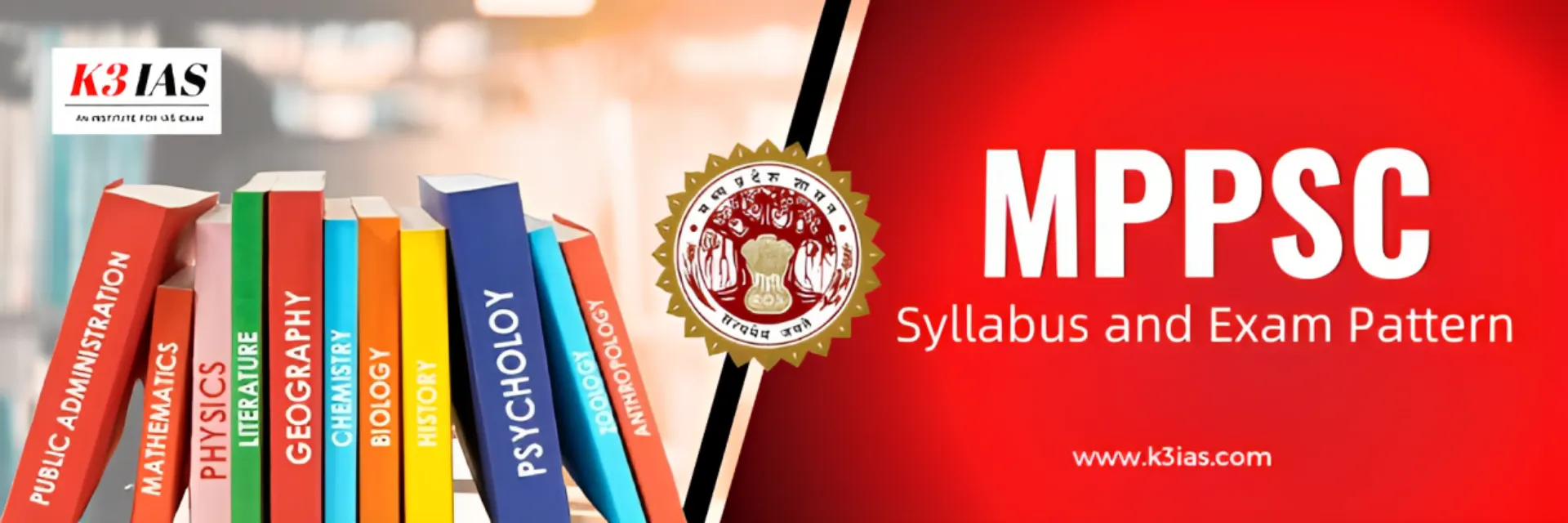
Indian History:
- Major events, features and their administrative,
- Social and Economic Systems of Ancient and Medieval India,
- Socio Religious Reforms,
- Indian National Movement,
- Integration and Reorganization of India after Independence.
History of Madhya Pradesh:
- Major dynasties in the history of MP,
- MP contribution to Freedom Struggle,
- Major Tribes and Dialects of MP,
- Major arts and Sculpture of MP,
- Festivals, Folk music and art of MP,
- Tourist Places, Tribal Personalities of MP.
Indian Constitution:
- Government of India Act 1919 and 1935,
- Constituent Assembly, President and Parliament,
- Fundamental Rights, DPSP, Fundamental Duties,
- Amendment of Constitution,
- Supreme Court and Judicial System of India.
National and Regional Constitutional & Statutory Bodies:
- Election Commission of India,
- State Election Commission,
- Union Public Service Commission,
- Madhya Pradesh Public Service Commission, Comptroller and Auditor General, NITI Aayog etc.
Constitutional System of Madhya Pradesh:
- Indian Constitution
- Indian Polity
- Social Justice
- Indian Governance
- International Relations
Indian Economy:
- Indian Economy,
- Industrial Development and Foreign Trade,
- Import and Export,
- Financial Institutions- Reserve Bank of India, Nationalised Banks, SEBI, National Stock Exchange (NSE), Non-Banking Financial Institutions (NBFI).
Economy of Madhya Pradesh:
- Demography and Census of MP,
- Economic Development of MP,
- Major Industries of MP,
- Castes of MP,
- Schedule Castes and Schedule Tribes of MP
- Major Welfare Schemes of MP.
Geography of World:
- Physical Geography: Physical features and Natural regions,
- Natural Resources: Forest, Mineral resources, Water, Agriculture, Wildlife,
- National Parks/ Sanctuaries/Safari,
- Population related Demography,
- Natural and Human resources,
- Mountains, Plateaus, Plains etc. of the world, Natural Resources.
Geography of Madhya Pradesh:
- Forest, Forest Produce, Wildlife, Rivers, Mountains and Mountain ranges of MP, The climate of MP,
- Natural and Mineral resources of MP,
- Transport in MP,
- Major Irrigation and Electrical Projects,
- Agriculture,
- Animal husbandry,
- Agricultural industries in MP.
General Science and Environment:
- Basic Principles of Science,
- Important Indian Scientific Research Institutions and Their achievements,
- Satellite and Space technology,
- Environment and Biodiversity,
- Ecological System,
- Nutrition, Food and Nutrients etc.
Information & Communication Technology:
- Electronics, Information and Communication Technology,
- Robotics, Artificial Intelligence and Cyber Security,
- E-Governance,
- Internet and Social Networking Sites,
- E-commerce.
MPPSC Prelims: General Aptitude Test (Paper-2)
- Interpersonal skills including communication skills.
- Logical reasoning and analytical ability.
- Decision-making and problem-solving.
- General mental ability.
- Basic numeracy.
- Hindi Language Comprehension Skill (Class X level).
MPPSC Mains Syllabus
General Studies Paper-I (Part-A): History & Culture
- Economic, Political, Cultural and Social aspects of History between the Indus Valley Civilization to the 10th Century AD
- India’s economic, political, cultural and social aspects of history between the eleventh- and eighteenth-century AD.
- Mughal Period
- British rule and its impact on Indian economy & society.
- Peasant and tribal revolt, 1857 revolt, Indian Renaissance, Nation Freedom Struggle Movements and its prominent leaders.
- India’s Independence, Reorganization of Indian States, Formation of MP, and Major events after India got Independence.
- Independence Movement in Madhya Pradesh.
- India’s culture and heritage (with reference to MP), literature, festivals, the architecture of India and MP
- World Heritage Sites in India and MP
- Major dynasties of MP.
General Studies Paper-I (Part-B): Indian Geography & MP
- Major mountain ranges, plateaus, plains, rivers, lakes and glaciers of the world.
- Geographical phenomena such as volcanoes, earthquakes, tsunamis, landslides, and cyclones.
- Major climate regions and seasons of the world, climate change and its impacts around the world.
- Monsoon, El Nino and La Nina
- Distribution of natural resources (metallic and non-metallic) around the world and India, forest resources
- Population distribution, growth, sex ratio, migration, literacy.
- Soil formation, soil composition, soil erosion, soil degradation, soil conservation planning.
- Natural Vegetation
- Water management, groundwater management, conservation of water.
- Disaster and its mitigation.
- Resource mapping and community planning.
- Remote sensing and its application
- Global Information System, at its application
- Global Positioning System and its application.
General Studies Paper-II (Part-A): Indian Constitution, Governance, Political and Administrative Structure
- Constitution of India, Basic Structure, Major constitutional amendments.
- Fundamental Rights and Duties, Directive Principles.
- Centre-State relations, Judiciary, Judicial Review, PIL, Lok Adalat
- Constitutional and Non-Constitutional bodies.
- Political parties
- Local government
- Participation of citizens in decision makings
- Self Help Groups, NGOs, and Community-Based Organisations.
- Role of electronic media in Democracy
- Indian political thinkers such as Mahatma Gandhi, Jawaharlal Nehru, Sardar Vallabh Bhai Patel, Ram Manohar Lohia, Dr. B.R. Ambedkar etc.
- Principle of Public Administration, its meaning, nature and significance, the role of Public Administration in developing countries.
- Concept of Power, authority, responsibility and delegation.
- Theories of organization, unity of command and steps and areas of control
- New dimensions of public management.
General Studies Paper-II (Part-B): Economics & Sociology
- Agriculture, industry and services sectors in India.
- National Income and its measurement.
- Role and function of RBI, commercial banks, monetary policy.
- Taxation in India, direct and Indirect tax, GST, fiscal policy.
- PDS, poverty, unemployment.
- Balance of payment, the balance of trade, the role of foreign capital, FDI, FII, WTO, ADB, etc
- Major crops in India and MP, cropping pattern in India and MP, horticulture, dairy, poultry, fisheries etc.
- Schemes on Agriculture
- Education and its various scenarios in India, government initiatives to promote education in India.
- Issues related to women, senior citizens, children,
- Concept of Culture and civilisation, the caste system in India, Purushartha, Chatushtya, Ashram, Religion and sect influences on society and methods of marriage,
- Family courts, community development programme.
- Demography and problems related to it, health, family welfare, women’s education, disease etc.
- World Health Organisation.
General Studies Paper-III: Science & Technology
Physics
- Gravitational Force, Friction, Work and Atmospheric pressure
- Unit and measurements,
- Acceleration, velocity and speed.
- Various aspects of Sound,
- Electricity, circuits and types of Cells
- Magnetism
- Light and refraction and reflection.
- Heat, temperature and their aspects
Chemistry
- Element, compound and mixture and its availability on the earth.
- Metal and Non-metals in the periodic table.
- Nuclear fusion and fission, atomic structure, atoms etc.
- pH value and acid, base and salts.
- Chemistry in day-to-day life.
Biology
- Cell and their functions, animal and plants cells
- Plant nutrition, balance diet, deficiency diseases, hormones etc.
- Human body its structure and functions
- Reproduction
- Disease, health and hygiene.
Information & Technology
- Computers, its types and generations
- Memory of the computer, Input as well as output devices
- Operating system of a computer, software as well as hardware
- Language of Computer, compilers, translators, assemblers, and interpreters
- Electronic mail and the Internet
- Web browsers and social media,
- E-governance, e-banking etc.
Science & Technology
- Remote Sensing and its application
- History of ISRO and famous scientists of India
- Satellites and Launch Vehicles
- Biotechnology and its application in various sectors as health, medicine, agriculture etc.
- Artificial Intelligence and Robotics
- Patient Rights, Intellectual Property rights and their differences
- Awards in the fields of science and technology.
Environment
- Concept of Environment its scope definition etc.
- Human activities and its impact on the environment.
- Environment Pollution, Biodiversity
- Degradation of environment and its cause and effect.
- Green Technology for conservation of environment.
- Policy made by Government for Environmental protection.
Quantitative Aptitude and Statistics
- Number system
- Profit and Loss
- Percentage
- Simple Interest
- Compound Interest
- Ratio and Proportion
- Probability
- Mean, Median and Mode
- Sampling
General Studies Paper-IV: Philosophy, Psychology & Public Administration
- Indian and Western Thinkers and reformers such as Buddha, Mahavir, Mahatma Gandhi, Ambedkar, Charwak, etc.
- Aptitude, Integrity, Empathy, Impartiality, tolerance, compassion, and objectivity towards the weaker section.
- Emotional Intelligence and its Application in Administration and Governance
- Elements of ethics in governance such as Transparency, Accountability, Integrity etc.
- Code of conduct for civil services
- Ethical Reasoning and Moral Dilemmas.
- Effects of Corruption, its causes, measures to minimize it, the role of whistleblowers, media, society etc.
- Case Study.
General Studies Paper-V: General Hindi & Grammar.
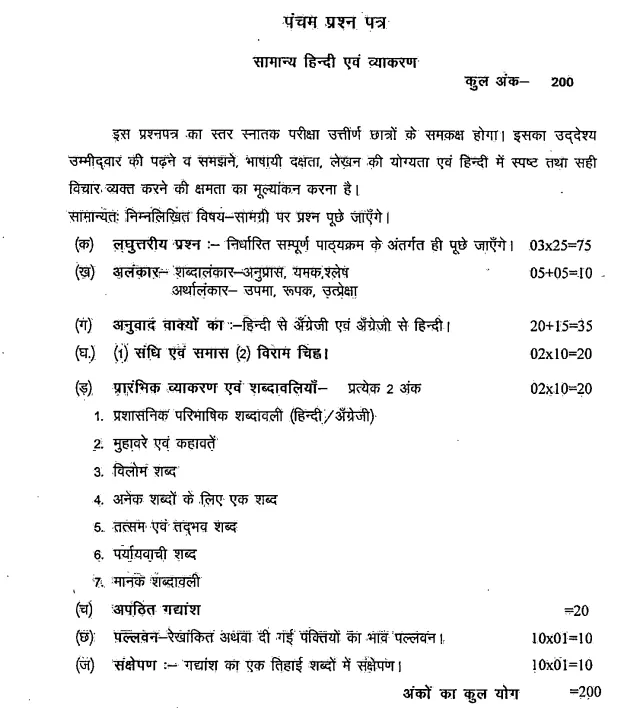
General Studies Paper-VI: Hindi Essay Writing.
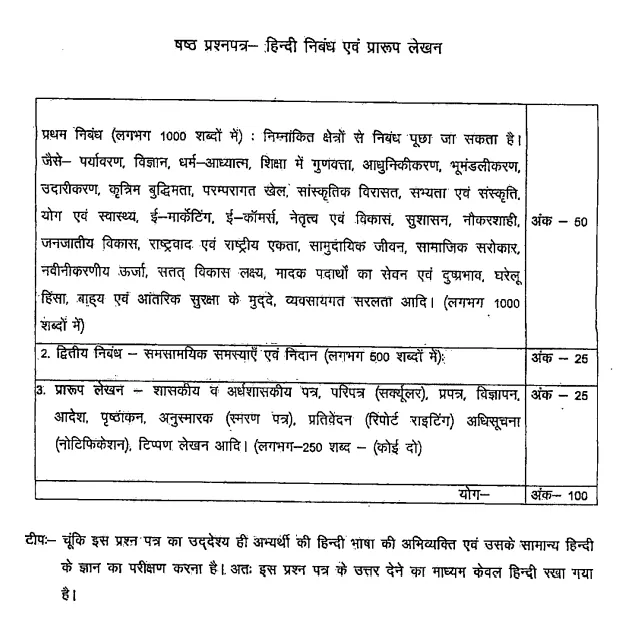
MPPSC Exam Pattern
MPPSC Prelims Exam Pattern
MPPSC Prelims Exam Pattern
General Studies I | |
Paper Type | Objective |
Time | 2 Hrs. |
Negative marks | No |
No. of questions | 100 |
Total Marks | 200 |
General Studies II (Aptitude Test) | |
Paper Type | Objective |
Time | 2 Hrs. |
Negative marks | No |
No. of questions | 100 |
Total Marks | 200 |
MPPSC Mains Exam Pattern
Subjects | To. Marks | Time |
Paper I – General Studies I | 300 | 3 Hrs. |
Paper II – General Studies II | 300 | 3 Hrs. |
Paper III – General Studies III | 300 | 3 Hrs. |
Paper IV – General Studies IV | 200 | 3 Hrs. |
Paper V – General Hindi | 200 | 3 Hrs. |
Paper VI – Hindi Essay Writing | 100 | 2 Hrs. |
Total Marks | 1400 | – |
- Question Papers will be available in both English and Hindi Languages.
- Applicants must score at least 40% marks in each area to qualify. For SC/ST/OBC/PwD applicants, it is 30%.
Candidates who clear the MPPSC Prelims Test will be qualified for the Mains assessment.
MPPSC Interview
Personal Interview is the final test of the candidate which is of total 175 marks. The questions asked are based on your character, personality traits, decision-making power, knowledge and presence of mind, body language, and how you present yourself in the interview.
Reference
All content of this syllabus page is taken and rearranged from the official websites of UPSC and MPPSC. You can check and confirm these syllabi on their official pages.
MPPSC Syllabus: https://mppsc.mp.gov.in/uploads/syllabus/Syllabus_State_Service_Examination_2022.pdf
UPSC Syllabus: https://upsc.gov.in/sites/default/files/Notif-CSP-22-engl-020222F.pdf
